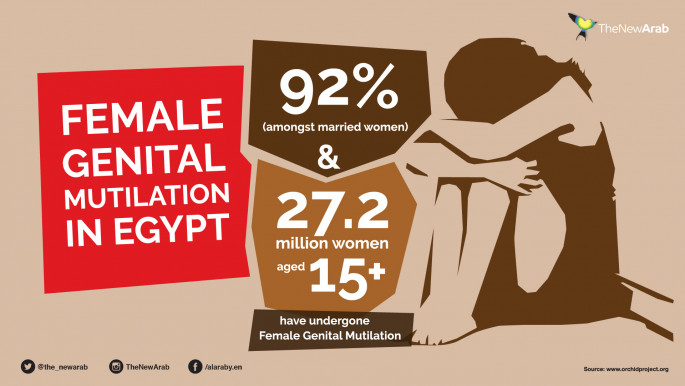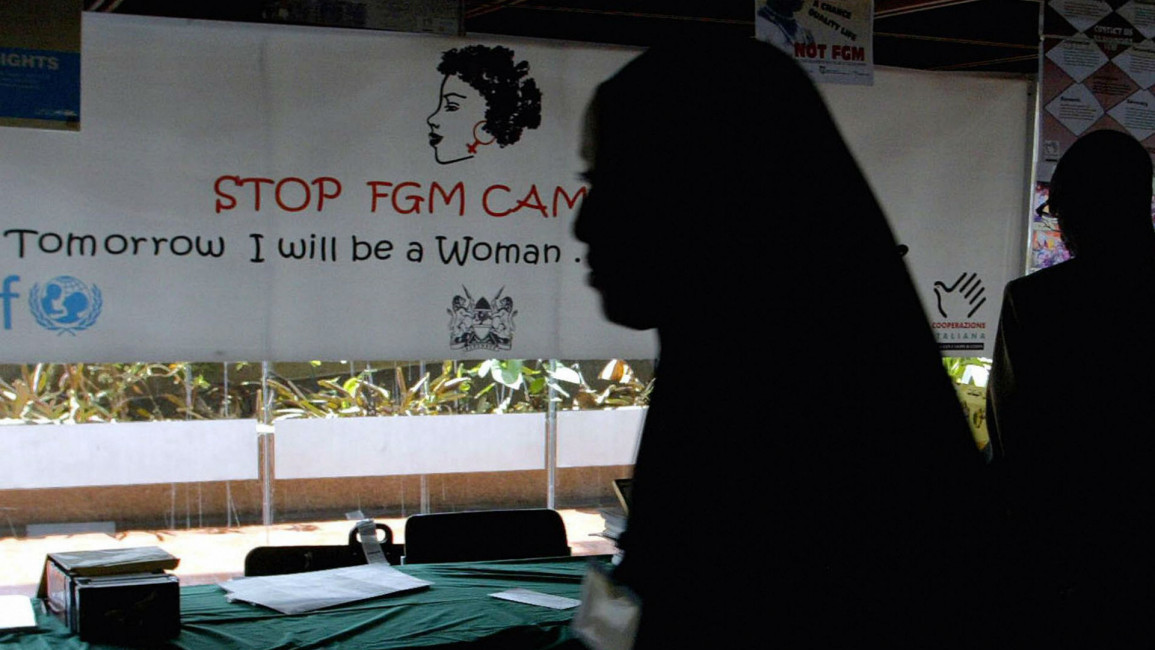Egypt Senate approves tougher sentences for FGM practitioners
Egypt's senate approved on Sunday a bill that toughens sentencing for those convicted of performing female genital mutilation (FGM).
The law, submitted by the government and approved at the plenary session, stresses sanctity of the body and seeks to confront the phenomenon that plagues the country.
The new amendments to the law toughen sentencing for those found guilty and also targets offenders in the medical profession with even harsher punishment.
An individual found guilty of FGM - whether removing part of the genitals or modifying, mutilating, or inflicting injuries - will be imprisoned for no less than five years.
If the inhumane procedure results in a permanent disability, the sentence is increased to at least seven years, and if it results in death offenders face jail terms of no less than 10 years.
 |
| Click image to enlarge |
Offenders who are registered as doctors or nurses can also faces sentences of three to 15 years. For cases that result in permanent disability, medical professionals can face 10 years hard labour, and in cases of death, no less than 15 years.
Additionally, medical professionals who are found guilty of performing FGM face being dismissed from their jobs for at least five years and facilities where procedures of this nature occur, can face the same punishment.
Some in Egypt believe FGM to be a medical procedure or upheld by beliefs associated with religion. However, the practice offers no medical protection and officials from both the Coptic church and the Azhar Supreme Council for Islamic Research have condemned the practice, issuing fatwas against FGM.
While efforts are being taken to stop the brutal practise of female gentile mutilation in Egypt, it remains relatively widespread in the country, despite being illegal since 2008.
Read more: Why is Egypt still performing so many female genital mutilations?
A 2008 Demographic and Health Survey (DHS) revealed that 63 percent of women aged between 15 and 49 believed that the practice should continue. The majority, 60 percent, cited a husband's preference for circumcised women and the prevention of adultery as a reason for their support.
According to a 2014 DHS, 92 percent of married women, between the ages of 15 and 49 had been victim to FGM, with 72 percent of procedures performed by doctors.
When first outlawed in 2008, the maximum sentence was between three months and two years in prison, or a maximum fine of 5,000 Egyptian pounds.
Follow us on Facebook, Twitter and Instagram to stay connected


![Minnesota Tim Walz is working to court Muslim voters. [Getty]](/sites/default/files/styles/image_684x385/public/2169747529.jpeg?h=a5f2f23a&itok=b63Wif2V)





![Israeli strikes on Beirut [Getty]](/sites/default/files/styles/image_330x185/public/2176155077.jpeg?h=a5f2f23a&itok=Xq7ypWgM)
